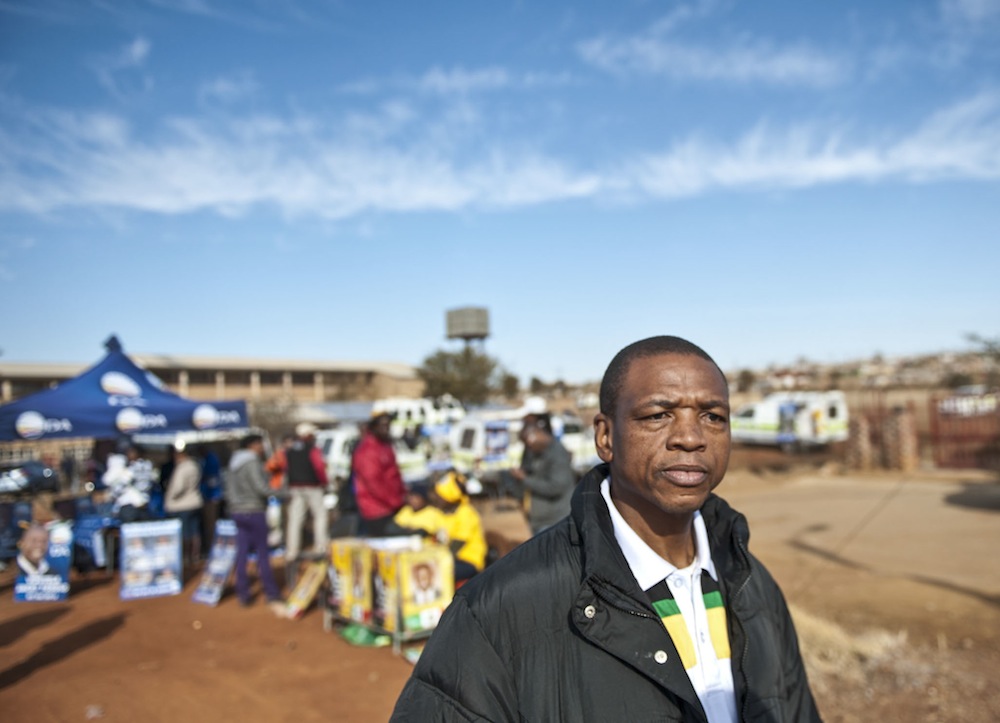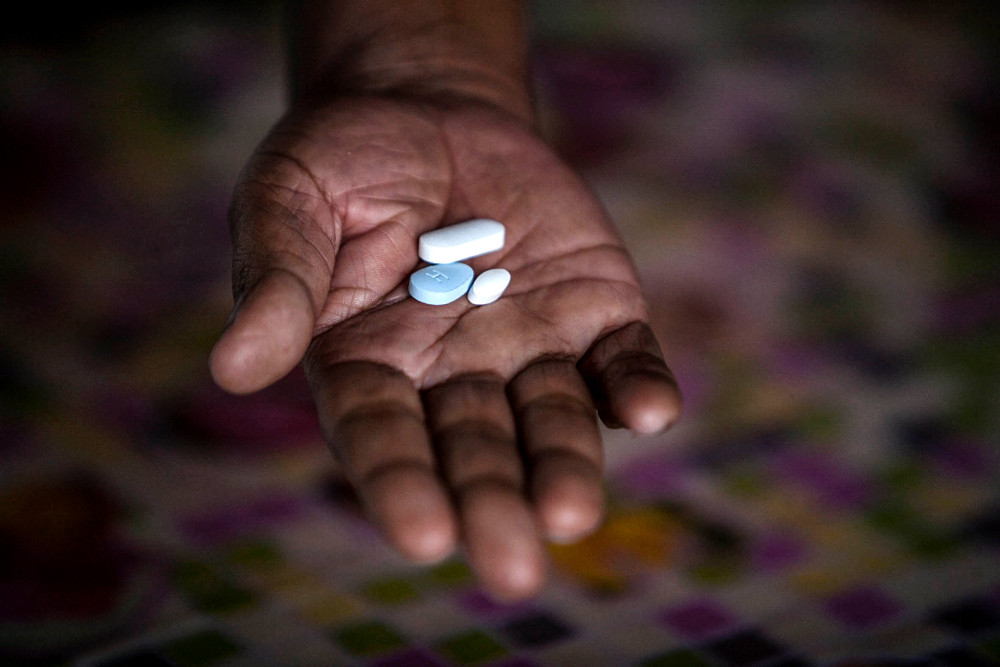The North West is out of medicine. And worse may be yet to come.
COMMENT
Today, many patients in North West province will have gone without their daily medication, whether to treat HIV or tuberculosis or basic antibiotics. Babies will have missed the important early vaccines that should protect them from killer diseases such as measles and pneumonia.
This after a week in which districts reported widespread stock-outs of up to 95% of drugs, including routine immunisations.
All the while, the provincial warehouse holds a significant supply of drugs.
At the centre of the crisis is the relationship breakdown between the province’s political leadership and members of the National Education Health and Allied Workers’ Union (Nehawu), whose go-slow at the provincial medicines depot has stopped drugs leaving or entering the facility. Nehawu says the protest action will continue until their demands, including better wages and Premier Supra Mahumapelo’s resignation, are met.
Efforts underway may supply drugs directly to drug-starved facilities within the next week.
But months later, when drugs are back on the shelves, we may be looking at a much deeper, more pernicious crisis in North West: a lack of health workers to dispense them and a health system so underfunded that it may also lack the basics, such as well-maintained machinery and even cleaning materials, it needs to function.
A working health system requires careful orchestration of a number of components, including leadership, financing, medicine supply and human resources.
There is no health system without health workers.
More than 17 500 employees work within North West health department, according to data from the most recent provincial expenditure estimates. But this figure does not include the more than 4 500 posts that stand vacant amid the department’s hiring freeze.
And the shortage of doctors, nurses and other healthcare workers in the province could get worse.

The man of the hour: Nehawu members are calling for big changes from North West Premier Supra Mahumapelo’s government as their go-slow stretches into its second month (Delwyn Verasamy).
The cost of employment now accounts for more than 60% of the consolidated health budget in the province, 2018-2019 North West estimates of provincial revenue and expenditure show.
Plans to rationalise the budget to save money will cut another 2 500 posts to bring costs in line with the available budget allocation. After these positions are slashed, 40% of posts planned for in facility organograms will be empty.
In its latest budget, North West has allocated just over R11-billion to health, including nationally awarded and ring-fenced conditional grants to the tune of R2.2-billion. This means that about R8.8-billion is available for healthcare delivery — on paper.
In reality, the provincial department of health’s overexpenditure of nearly R1-billion in the 2017-2018 financial year represents more than 10% of the consolidated health budget.
Think of it like an overdraft. You overspend this year, so when your budget lands, you have to make up for the overexpenditure budget, in effect reducing your budget.
Against this backdrop, even a nominal increase of 6% over last year’s health budget is still underfunding the system.
Our interactions with North West partners and district officials suggest that, although overall budget growth was reported, available operational budgets are often a lot less.
Budgets allocated to specific line items such as human resources are often underspent and instead reallocated to provincial priorities or goods and services budgets that are used to procure services and buy medicines.
In this goods and services budget, there is greater opportunity for directing the funds to service providers such as the Gupta-linked medical technology company Mediosa that won an R180-million illegal tender for two mobile clinics.
In one North West district, data obtained by the Rural Health Advocacy Project (RHAP) from an annual district health expenditure review (2016) indicated that officials had spent three times the allocated amount on medicines.
When questioned about this variance, district officials reported that the expense had been recorded at the provincial level, suggesting the medicines may have been ordered but not received.
There may well be other instances of a seeming perversion of financial management processes that require deeper investigation.

First and second-line antiretrovirals are among the medicines running in short supply in the North West (Oupa Nkosi).
RHAP recognised the looming threat of austerity budgets as early as 2015. We have worked with provinces and the national health department to try to safeguard critical health posts in an era of cost-cutting.
We have worked with districts nationwide to evaluate district health expenditure and support the development of needs-based budgets. In North West, the project’s support for district management teams in the prioritising of crucial positions was initially well received. Although two districts in the province initially made good progress, the process was subsequently halted.
Meanwhile, the North West has received national treasury support to improve provincial treasury management. These interventions have improved financial management practices, they have not addressed broader resource allocation challenges within the province.
Provinces enjoy significant levels of autonomy in the way in which their resources are allocated. In North West, local government has prioritised inclusive development with its Village, Township, Small Dorpies Enterprise Development Strategy. The policy’s implementation may not be living up to its noble intentions, however.
Under this strategy, the provincial budget is geared towards prioritising spending in support of the advancement of local economies. Often this translates into the development of patronage networks that do little more than advance the interests of politically connected individuals.
Although there is yet to be an assessment of the strategy or an audit of the impact on provincial spending, recent reports of rampant mismanagement lend some credence to this.
Meanwhile, the province’s reports show that some health infrastructure improvement projects in the province have languished unfinished since 2013.
Only 20% of the targets of the grants have been met, but 100% of the budget has been spent, according to a parliamentary budget office review of the country’s hospital revitalisation grant.
Little information is provided on how much delays are costing the state or whether they have been budgeted for.
If this is adjusted for provincial performance, it is safe to assume that there are significant cost overruns in the over R600-million allocated annually.
Today, patients and health workers in North West will continue to scramble to access life-saving medication. And although it’s difficult to attribute poor health outcomes to the province’s ongoing political and financial crisis, North West is one of the country’s worst provinces in the number of mothers and newborns who die each year. The same can be said of the many children who don’t live to see their fifth birthday, according to the 2016/17 District Health Barometer.
Mahumapelo has established an MEC task team to deal with the province’s drug shortages. But resolving the larger crisis facing healthcare in North West will require a very different kind of task team, one that includes representatives from civil society.
That team must honestly assess the state of health services, and develop and manage a plan that prioritises the delivery of services to patients in need. The health emergency in North West provides an opportunity for bold leadership that can begin to address a legacy of failure that has arisen over the past nine years.
Failure to act can be seen as tacit approval for the ongoing plundering of the state.
Russell Rensburg works at the Rural Health Advocacy Project as programme manager for health systems and policy. Follow him on Twitter @russ421.